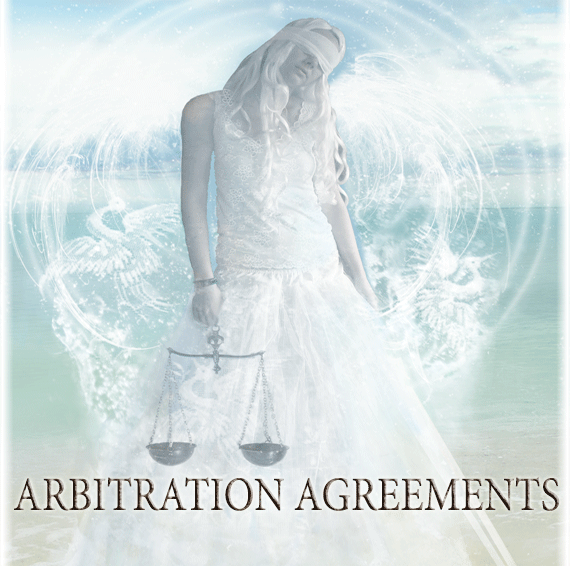In 2007, in Gentry v. Superior Court (2007) 42 Cal.4th 443, the California Court of Appeals held that a class waiver provision in an arbitration agreement should not be enforced if “class arbitration would be a significantly more effective way of vindicating the rights of affected employees than individual arbitration.”
However, since 2007, the legal landscape has changed and four years later, in April 2011, in AT&T Mobility LLC v. Concepcion (2011) __ U.S. __ [131 S. Ct. 1740] (Concepcion), the United States Supreme Court held that “[r]equiring the availability of classwide arbitration interferes with fundamental attributes of arbitration and thus creates a scheme inconsistent with the FAA” thereby reiterating the rule that the principal purpose of the Federal Arbitration Act (FAA) is to ensure that arbitration agreements are enforced according to their terms.
Last week, this tension between federal and California law has been clarified by the California Court of Appeals in Iskanian v. CLS Transportatiom Los Angeles, LLC, 2012 Cal. App. LEXIS 650 (Cal. App. 2d Dist. June 4, 2012). (Iskanian) Refusing to apply Gentry and relying mainly on Concepcion, the Iskanian court held that the arbitration agreement could not be found unconscionable under Code Civ. Proc., § 1281, based on interference with the ability to vindicate statutory rights because such a finding would be inconsistent with the FAA. Moreover, the FAA did not permit PAGA representative claims under Lab. Code, § 2699, subd. (a), to be insulated from arbitration based on public policy reasons.
FACTS
The plaintiff, Arshavir Iskanian, worked as a driver for defendant CLS Transportation Los Angeles, LLC (CLS). In December 2004, Iskanian signed a “Proprietary Information and Arbitration Policy/Agreement” (arbitration agreement) providing that “any and all claims” arising out of his employment were to be submitted to binding arbitration before a neutral arbitrator. The arbitration agreement also contained a class and representative action waiver, which read: “[E]xcept as otherwise required under applicable law, (1) EMPLOYEE and COMPANY expressly intend and agree that class action and representative action procedures shall not be asserted, nor will they apply, in any arbitration pursuant to this Policy/Agreement; (2) EMPLOYEE and COMPANY agree that each will not assert class action or representative action claims against the other in arbitration or otherwise; and (3) each of EMPLOYEE and COMPANY shall only submit their own, individual claims in arbitration and will not seek to represent the interests of any other person.”
On August 4, 2006, Iskanian filed a class action complaint against CLS. In its March 2007 order granting CLS‟s motion to compel arbitration, the trial court found that the arbitration agreement was neither procedurally nor substantively unconscionable. Gentry, however, was decided soon after the trial court rendered its order, and the Court of Appeals issued a writ of mandate directing the superior court to reconsider its ruling in light of the new authority. In light of Gentry, the trial court granted Iskanian’s motion, certifying the case as a class action.
On April 27, 2011, the United States Supreme Court decided Concepcion, which prompted CLS to renew its motion to compel arbitration. The trial court ordered the parties to arbitrate their dispute and dismiss the class claims. Iskanian appeals from that order.
The court addressed whether the subject arbitration agreement—including its prohibition of class and representative claims—is enforceable under the law.
The Concepcion Decision Conclusively Invalidates the Gentry Test.
The Court of Appeals found that the trial court properly applied the Concepcion holding—and properly declined to apply the Gentry test—by enforcing the arbitration agreement according to its terms. Remember that in Gentry, court concluded that under some circumstances a class arbitration waiver “would impermissibly interfere with employees‟ ability to vindicate unwaivable rights and to enforce the overtime laws.” However, the Iskanian court held that sound policy reasons identified in Gentry for invalidating certain class waivers are insufficient to trump the far reaching effect of the FAA, as expressed in Concepcion.
The Court Declined to Follow D.R. Horton.
In D.R. Horton, the NLRB held that a mandatory, employer-imposed agreement requiring all employment-related disputes to be resolved through individual arbitration (and disallowing class or collective claims) violated the National Labor Relations Act (NLRA) because it prohibited the exercise of substantive rights protected by section 7 of the NLRA. (D.R. Horton, 2012 NLRB LEXIS at p. *6.)
However, the Iskanian court explained that because the FAA is not a statute the NLRB is charged with interpreting, it has no obligation to defer to the NLRB‟s analysis. D.R. Horton’s holding improperly elevates the NLRB‟s interpretation of the NLRA over section 2 of the FAA.
The PAGA Claims are Waivable.
Plaintiff argued that given the clear intent of the Legislature to benefit the public by providing for representative actions under the PAGA, the “public right” of representative actions under the PAGA is unwaivable. Relying on the Ninth Circuit’s decision in Kilgore v. KeyBank, N.A. (9th Cir. 2012) 673 F.3d 947 , the Iskanian court held that “the very nature of federal preemption requires that state law bend to conflicting federal law—no matter the purpose of the state law. It is not possible for a state legislature to avoid preemption simply because it intends to do so. The public policy reasons underpinning the PAGA do not allow a court to disregard a binding arbitration agreement. The FAA preempts any attempt by a court or state legislature to insulate a particular type of claim from arbitration.
Practical Considerations
In the meantime, in drafting employee application, handbooks or agreements, employers should carefully review any arbitration clauses. The arbitration agreements are still subject to the FAASection 2’s “saving clause” that permits revocation of an arbitration agreement if “generally applicable contract defenses, such as fraud, duress, or unconscionability” apply.


